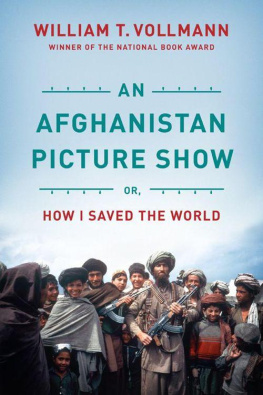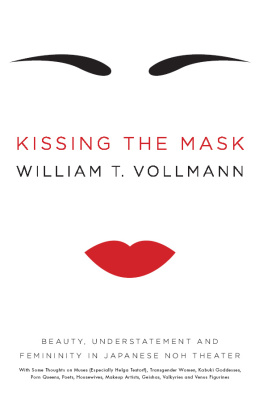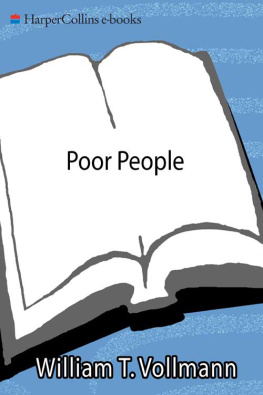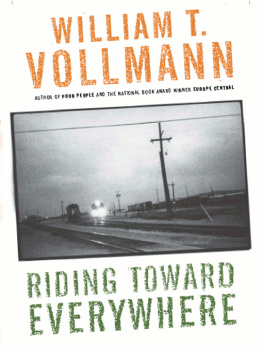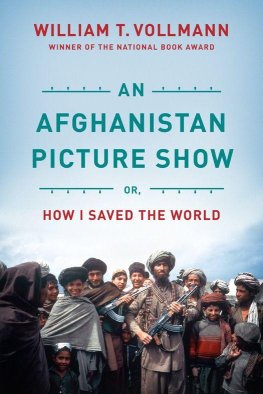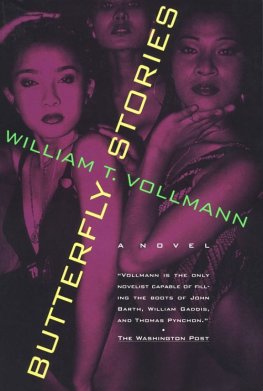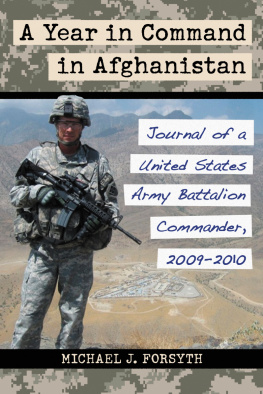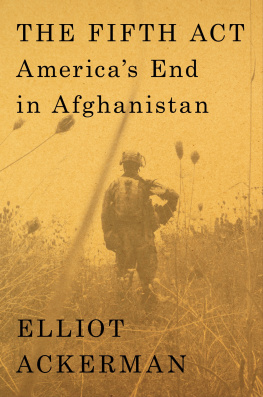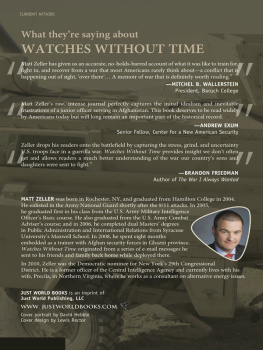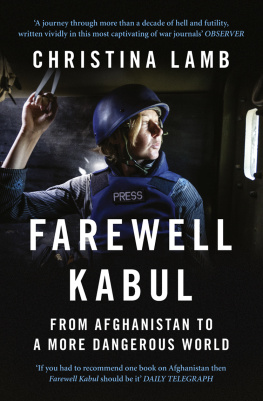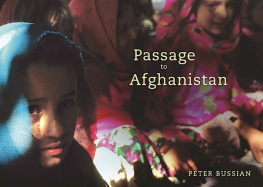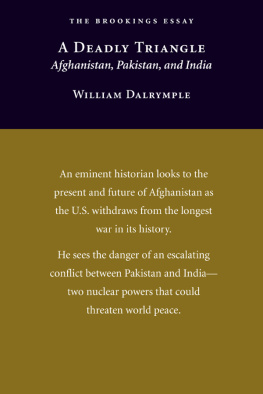ALSO BY WILLIAM T. VOLLMANN
You Bright and Risen Angels (1987)
The Rainbow Stories (1989)
The Ice Shirt (1990)
Whores for Gloria (1991)
Thirteen Stories and Thirteen Epitaphs (1991)
An Afghanistan Picture Show (1992)
Fathers and Crows (1992)
Butterfly Stories (1993)
The Rifles (1994)
The Atlas (1996)
The Royal Family (2000)
Argall (2001)
Rising Up and Rising Down (2004)
Europe Central (2005)
Uncentering the Earth (2006)
Poor People (2007)
Riding Toward Everywhere (2008)
Imperial (2009)
Kissing the Mask (2010)
Into the Forbidden Zone (2011)
AN AFGHANISTAN PICTURE SHOW
Copyright 1992 by William T. Vollmann
Introduction copyright 2013 by William T. Vollmann
First published by Farrar, Straus and Giroux in 1992
First Melville House printing: July 2013
Melville House Publishing
145 Plymouth Street
Brooklyn, NY 11201
and
8 Blackstock Mews
Islington
London N4 2BT
eISBN: 978-1-61219-199-7
A catalog record for this title is available
from the Library of Congress.
v3.1
This book is dedicated
to all who try to help others,
whether they succeed or fail
And I have admitted that the foreigner will probably pronounce a sentence differently if he conceives it differently; but what we call his wrong conception need not lie in anything that accompanies the utterance
W ITTGENSTEIN , Philosophical Investigations, I.20
CONTENTS
Bills come a long way from An Afghanistan Picture Show, said an editor to my agent in the course of rejecting my latest book; so far as he was concerned, I must not have come far enough. Never mind that I could say the same about him; for when I look back on the product of sincerity and gaucherie which you are now reading, I believe in both his propositions. As it stands, An Afghanistan Picture Show is a much delayed revision and amplification of the very first book I wrote, which was not the first book I published. As such, it suffers deficiencies of both form and content. One of my German translators recently told me: AnAfghanistan Picture Show is your weakest book, in my opinion. I hope you dont mind my saying that. Indeed, I do not. First of all, I had just begun to teach myself how to write. It takes years to learn how to observe, when to make a sentence terse or flowery, and which questions to write. The books attempts at humor and whimsicality embarrass me, although some of its irony still entertains me.
Of course what embarrasses me far more is the pitiless recounting of my myriad failures. I cannot reread portions of this book without shameat my ignorance, my smug conviction that I could somehow do the Afghans a favor, my physical inability to keep up with the Mujahideen, my utter uselessness. And this puts me on the track of why An Afghanistan Picture Show may be of value. It is not a political analysis, although it hoped to be. It is hardly even much of an adventure memoir. But it delineates, with an honesty I remain proud of, the attempt of one young man to be of service to others.
It continues to astonish me how easy it is to harm people and how difficult it is to help them. Most of my books deal with this issue, but never so directly as here.
I wanted to help the Afghans. I assumed that goodwill and a degree of intrepidity would be enough.
I believed, and still do, that every human being is my brother or sister, and therefore that we are all of us equally deserving of help.
I love Afghanistan as much today as I did when I first crossed the border in 1982. The land is beautiful and the people were kind to me.
The wish I have always had to be of service made me very lonely when I first decided to go to Afghanistan. No one could understand me. When I returned, with observations and descriptions which I considered important, my fellow Americans told me: No one cares about Afghanistan, or, better yet: Afghanistan, Bananastan!
September eleventh changed everything, and, in more ways than the obvious ones, it altered Americans, most of whom, like me, had been lucky enough to grow up without knowing what was happening in the rest of the world. Needless to say, by Americans I pointedly exclude my own government, which has intervened, to great ill and frequent good effect, without the knowledge or comprehension of its so-called electorate. It poked its foreign policy stick in a number of ant-hills, and finally some ants bit back.
Afghanistan accordingly transformed itself from a comical Nowheresville into an evil place of which Americans were all too aware. If only we could kill all those killers and murder all those murderers! Then we would be safe again.
In 1998, returning from sanctioned Iraq, I wrote:
The notion that stern domination of a country can prevent its evil resurgence did not work against Germany after World War I. It will not work here. It will succeed only in creating and hardening new enemies for America and her sister powers. Sooner or later, some Iraqi clever enough to build a destructive device will try again, and his hatred will not be restrained by memories of our kindness.
Unfortunately, the events of September eleventh have borne me out, although they appear to have been planned in Afghanistan or Saudi Arabia instead of Iraq. Well, whats the difference? Afghanistan, Bananastan! As some fellow citizens said while watching television coverage of the first Gulf War: Thats right, thats right; weve got to stop those goddamned Iranians.
I am not a diplomat or a strategist. My only gift as a political observer is my ability to see and state the obvious. If you went to a Muslim country such as Iraq and saw the children dying for lack of anti-diarrhetic medicines, if you witnessed the hatred, grief, and defiance of the people, furthermore, if you returned home and found out that your friends and neighbors, in whose name your government was causing this suffering, possessed neither knowledge nor interest about the situation, how could you not anticipate something like September eleventh? Sometimes I can almost excuse President Bush (who ought to be in a cell in The Hague) for the second Gulf War. After all, even though Saddam Hussein possessed no weapons of mass destruction, and his links to al-Qaeda were falsified, he certainly could have wanted to avenge himself on us!
In An Afghanistan Picture Show you will similarly find statements of the obvious: Victims are not necessarily saints; nor are would-be benefactors. The Afghans are no more homogenous than the Americans. Good intentions alone do not elicit gratitude. Helpfulness cannot be scientifically calculated. Generosity and fairness may be mutually exclusive. The give and take in human relations is often unpredictable. How astonished these discoveries made me!
I was very foolish, but I never knowingly did harm, and I tried not to lie about myself.
Please let me tell you the obvious about Afghanistan: Every child and grandmother we kill makes us new enemies. We will never win over there.

